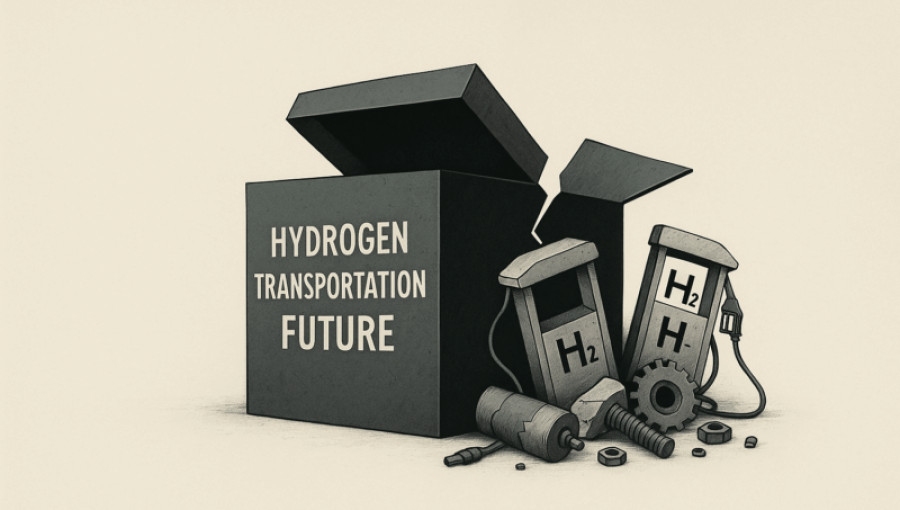In 2019, South Korea launched an ambitious initiative to transition its police bus fleet to hydrogen fuel cell technology by 2028, aiming to position the nation as a leader in hydrogen transportation. However, by the end of 2025, only 16 of the intended 802 hydrogen police buses will be operational due to inadequate fueling infrastructure. Despite initial investments of over $7.2 million, the police force has opted to discontinue the program, revealing troubling economic realities. This decision highlights a broader trend of faltering hydrogen vehicle initiatives in South Korea and warns of a shift towards battery electric vehicles, which are proving to be more reliable and cost-effective.
The 2019 commitment was a notable attempt at establishing hydrogen as a cornerstone of South Korea’s transportation strategy, particularly for critical national security roles. The fleet of police buses, designed for quick response and crowd control, was seen as a powerful endorsement of hydrogen technology. Hyundai delivered prototypes, and significant funding was allocated for necessary infrastructure, including hundreds of hydrogen fueling stations. South Korea’s efforts initially positioned it among a select group of countries to invest heavily in hydrogen transport.
However, the subsequent years have revealed significant operational challenges. By 2025, the police have reported that only 16 hydrogen buses are viable, citing the unreliability of fueling stations. Despite the installation of several hydrogen stations, issues such as limited service hours, rationing of fuel, and frequent outages have made consistent operation impossible for a fleet requiring high readiness. With $7.2 million already spent and expectations unmet, the police’s decision to halt further purchases signals a critical blow to the hydrogen transportation initiative.
Bruno Latour’s actor-network theory (ANT) provides a framework for understanding this situation; the narrative promoted regarding hydrogen transportation has been treated as an unassailable fact by politicians and industrial actors. Initially, various stakeholders joined forces, bolstered by subsidies and a shared vision. However, upon closer inspection, it became evident that the underlying economics did not support the ambitious goals. Hydrogen buses remained more expensive and less operationally viable compared to battery electric vehicles (BEVs). The police’s withdrawal is significant; they represented a critical junction in the hydrogen narrative, and their decision reframes perceptions of hydrogen’s feasibility.
The issues with hydrogen extend beyond economics to safety. A significant explosion involving a hydrogen bus not only raised alarms about fueling infrastructure but posed deep questions about the technology’s reliability in critical applications. As the police transitioned away from hydrogen, the implications echoed broader trends in South Korea’s energy policy and transportation strategy.
While there was an initial surge in hydrogen commitments, South Korea’s more extensive plans, which included deploying over 21,000 hydrogen buses by 2030, are now faltering. The flagship Hyundai Nexo has seen its sales plummet, further undermining government and industrial expectations. Infrastructure build-out has consistently lagged behind targets, reflecting delays in the ambitious rollout envisioned for hydrogen fuel.
This troubling trend is not unique to South Korea. Globally, hydrogen vehicles struggle to gain traction, with limited sales and disappearing fueling infrastructure in other nations, including Japan and parts of the U.S. Meanwhile, the opposite trend is emerging for battery electric vehicles. In South Korea, BEV sales are skyrocketing, achieving 118,717 units sold within the first seven months of 2025. Lower costs, greater availability, and rapidly expanding support infrastructures are driving the adoption of BEVs, creating a reinforcing cycle.
As 2023 progresses, the “hydrogen transportation deathwatch” catalogues numerous companies retreating from hydrogen ventures, illustrating a market that increasingly favors battery electrics. This shift signifies an evolution in understanding and an acknowledgment that the ambitions for hydrogen, once seen as transformative, are now yielding to more feasible alternatives.
The decision of South Korea’s police force to reject further investment in hydrogen buses marks a pivotal moment in the narrative surrounding transportation energy futures. It signals a broader acknowledgment that the previously established storylines around hydrogen may not hold true when

